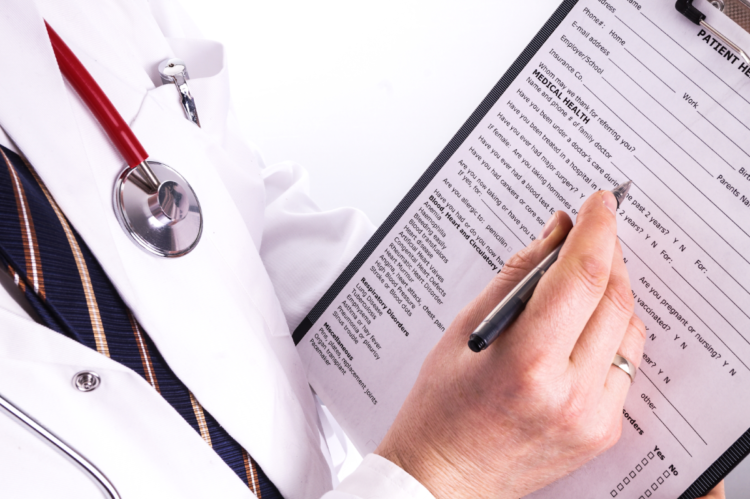If you have had to go to hospital for a wound, disease, injury, or other health impairment, you are in a vulnerable state. While in that vulnerable state, you are at the mercy of those who offer help. Those who are trained to do so, swear an oath to take that role seriously. When they don’t the results are horrifying.
Not only are they horrifying – but they can cost you. Hospital negligence costs you in physical, mental, and emotional health. That’s not even considering the monetary expenses you run up recovering.
With various contradictory studies out there, the best guess is that medical negligence results in anything between 2 and 4 hundred thousand US deaths per annum. If you have narrowly avoided becoming one of those numbers – then we are here for you. Specifically, we are here to tell you about the 10 things you should really know before you start proceedings.
Page Contents
10 things Hospital Negligence Claimants Ought to Know About

Source: businesslive.co.za
So before you file to get your compensation, let’s talk about awareness. What should you know about claiming negligence from a hospital?
1 – You Should Lawyer Up
Hospitals are big institutions with even bigger insurers at their backs. They do not want to part with their cash. It’s likely that they have a whole legal team working on your one case. All the more reason to listen carefully to the following points, and to lawyer up yourself.
If you live in Oregon, Marc A. Johnston is a reputed hospital negligence attorney who can get you the justice you deserve. In a world where the hospitals have more legal protection than the patients, it’s important to bring in someone who knows what they are doing.
2 – The Burden of Proof is on You
If you want to bring a lawsuit against the hospital for negligence, you first have to prove that negligence took place. This means getting as much documentary evidence as you can, at every stage of your illness and recovery.
This is easier to do if you are operating on someone else’s behalf, but if you are incapacitated, you cannot be expected to do this. You also cannot trust the hospital’s records, but we will get to that in a moment. For now, let’s just summarise this point by saying you should be able to prove your illness was made worse by the hospital.
3 – You Can’t Trust Hospital Records

Source: truenorthitg.com
You absolutely cannot trust medical records kept by the hospital in question. Several past cases have set the precedent for this. In Chicago in 2012, a surgeon was found guilty of multiple cases of falsifying medical records. In Florida in the year 2000, a man was awarded $216.7 million after he was left brain damaged by the misdiagnosis of a stroke – and later falsifying the records.
So no, you can’t always trust the hospital to keep accurate records of your visit.
4 – How do you Prove Hospital Negligence?
If you can’t trust the hospital, and you can’t trust yourself because you were injured and in and out of consciousness. Then who can you trust? This leads us back to the first point about hiring a hospital negligence attorney. A specialist lawyer like JJS Justice can document and fight on your behalf, but your next of kin could also perform this task.
5 – What counts as proof?

Source: edisonhhc.com
Keeping things like prescription medication bottles with your name on it, prescription slips, and notes of dates and times that you attended hospital, will all help.
Things like checking your timeline on Google Maps can prove where you were on that day. You might take pictures to document your recovery or treatment. You should also gather statements from all the witnesses you have. If you have travelled back and forth to the hospital, keep tickets from your journeys, or use a taxi firm who will keep a note of your journey.
Again, all of these are things your hospital negligence lawyer will help you through.
6 – Is it Negligence or is it Malpractice?
Medical negligence is a minor infraction performed by the hospital staff that has infringed on your good health. If you cut your finger and they stitch it badly so that you need to return to have it done a second time, this might be considered negligence.
If you cut your finger and they poured a cleaning agent on the wound that wasn’t fit for human use, then that would be malpractice. Malpractice cases happen when the damage to your person is so bad that it seriously impacts your way of life. Leaving you with permanent injuries, scarring, or wounds that won’t heal, are all malpractice cases.
7 – There’s a Statute of Limitations

Source: laws101.com
The statute of limitations for medical or hospital negligence claims in the state of Oregon is two years from the date of injury. This prevents you being able to bring up historic incidents or make claims from too long ago. It also means you need to hurry and get your claim started before that time limit runs out.
8 – Misdiagnoses and failure to diagnose are both Negligence
If you have visited a hospital and they have not diagnosed your illness, you are a victim of medical negligence. Although this sounds minor – imagine being given a prescription for heart problems when you have a healthy heart. Then imagine it goes unnoticed for months. This could seriously injure you and leave you with medical bills for life.
9 – Childbirth Problems are the 3rd Most common Negligence Occurrence

Source: motherjones.com
When it comes to hospital negligence, childbirth is the area worst affected. With childbirth being a complex process, errors are far too common. Any errors that lead to the ill health of the baby can be considered negligent.
10 – You Might Not Go To Court
More often than not, your attorney will put together proceedings, collating all your evidence and sending it off to the judge. If the judge feels the need to go to court, your attorney should appear on your behalf. It is likely that the opposition will try to settle out of court but this can also be discussed with your representation.





